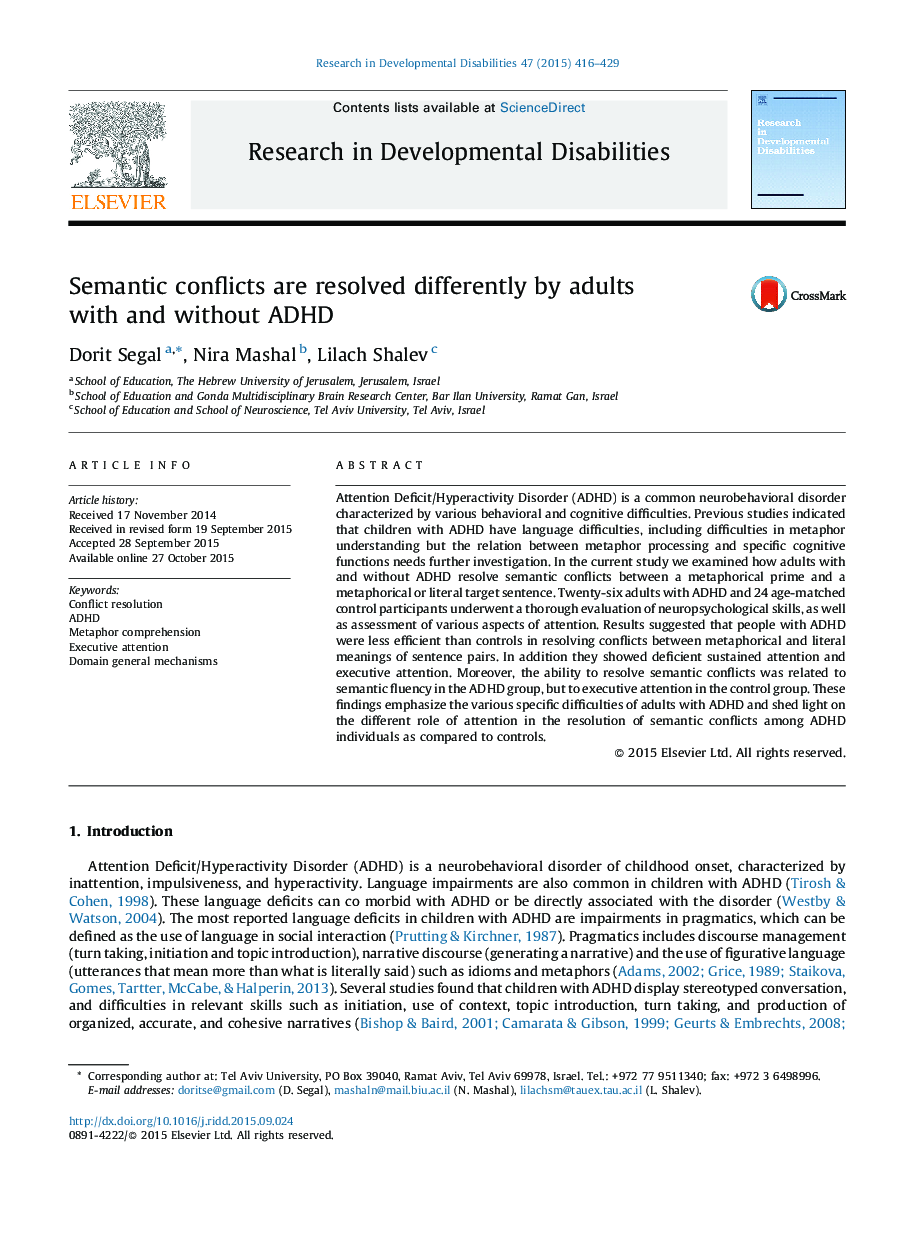| Article ID | Journal | Published Year | Pages | File Type |
|---|---|---|---|---|
| 371148 | Research in Developmental Disabilities | 2015 | 14 Pages |
•We assessed the semantic conflict resolution ability of adults with and without ADHD.•ADHD participants showed decreased sustained and executive attention.•ADHD participants were less efficient than controls in resolving semantic conflicts.•The executive attention predicted semantic conflict resolution ability in controls.•Semantic fluency predicted semantic conflict resolution ability in the ADHD group.
Attention Deficit/Hyperactivity Disorder (ADHD) is a common neurobehavioral disorder characterized by various behavioral and cognitive difficulties. Previous studies indicated that children with ADHD have language difficulties, including difficulties in metaphor understanding but the relation between metaphor processing and specific cognitive functions needs further investigation. In the current study we examined how adults with and without ADHD resolve semantic conflicts between a metaphorical prime and a metaphorical or literal target sentence. Twenty-six adults with ADHD and 24 age-matched control participants underwent a thorough evaluation of neuropsychological skills, as well as assessment of various aspects of attention. Results suggested that people with ADHD were less efficient than controls in resolving conflicts between metaphorical and literal meanings of sentence pairs. In addition they showed deficient sustained attention and executive attention. Moreover, the ability to resolve semantic conflicts was related to semantic fluency in the ADHD group, but to executive attention in the control group. These findings emphasize the various specific difficulties of adults with ADHD and shed light on the different role of attention in the resolution of semantic conflicts among ADHD individuals as compared to controls.
